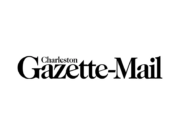This piece originally appeared in the Post and Courier on March 10, 2024.
South Carolina currently provides no protection against a key threat to free speech: strategic lawsuits against public participation, or “SLAPPs.”
But there’s good news. A bill under consideration in the S.C. House would allow lawmakers to remove South Carolina from the shrinking list of states with no legal safeguards against this danger to First Amendment rights.
The S.C. Public Expression Protection Act would immediately fortify South Carolinians’ free speech rights against the threat posed by SLAPPs.
H.4274 mirrors the nonpartisan Uniform Law Commission’s model statute, the Uniform Public Expression Protection Act.
What makes these lawsuits so dangerous to free speech? Wealthy plaintiffs can use the costs of defending against these suits to shut down speech they don’t like and to chill future speech by intimidating other would-be speakers into remaining silent.
These lawsuits, usually frivolous defamation suits against the speaker, can pertain to speech about any matter of public concern — a political issue, criticism of a public figure or even something as simple as an online review.
In any of those scenarios, an unscrupulous plaintiff could attempt to silence you by filing a lawsuit.
The costs, stress and time associated with defending against a suit are a punishment for legal speech. We estimate that it costs between $21,000 and $55,000 to defeat a typical meritless defamation suit in court, but the cost can easily reach six figures.
And that isn’t by accident. Those negative consequences are often the goal of a SLAPP. Imposing this severe financial and emotional burden sends the message to other speakers that voicing a similar opinion could be a major mistake.
The bill pending in the House would address this threat head-on by deterring these harassment suits and reducing defendants’ potential litigation costs.
Plaintiffs would have to show they have a legitimate case early in the lawsuit and provide defendants with a right to an immediate appeal if the court denies the anti-SLAPP motion.
Laws like H.4274 guard against the expense of these lawsuits by permitting winning defendants to recover costs and attorney fees. They also instruct judges to interpret the law’s speech protections broadly.
Passing H.4274 would correct South Carolina’s failure to offer any protection against these political lawsuits.
That failure is why the state earned a zero out of 100 points and an “F” grade in the Institute for Free Speech’s 2023 Anti-SLAPP Report Card, an analysis of laws in all 50 states and Washington.
That unfortunate status puts South Carolina on an unenviable and shrinking list of just 17 states with failing grade. That contrasts with the trend detailed in the report, which shows that, for the first time, most Americans live in a jurisdiction with good protections against these suits, meaning a grade of “B” or better. This list includes nearby Georgia, which has an excellent score of 98 and a solid “A” grade.
Protecting the speech rights of its citizens should be a top priority for S.C. lawmakers. H.4274 provides a pivotal opportunity to do so.
Lawmakers should pass this bill as soon as possible and help South Carolina join the growing number of states that offer speakers legal safeguards against these damaging, speech-suppressing lawsuits.
David Keating is president of the Institute for Free Speech and a co-author of the 2023 Anti-SLAPP Report Card.














